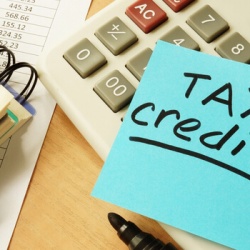I’m employed but work freelance on the side – what tax do I pay?

It’s not unusual these days for people to earn a side income by freelancing alongside a full-time or part-time job. Advances in technology have provided an ideal environment for us to boost our income using specific skills, or simply to earn money from a hobby.
An important point if you earn an income from freelancing as well as being employed, however, is to let HMRC know and declare your side earnings for tax purposes. So how much tax might you pay as a freelancer and how is it calculated?
How much tax do I pay as a freelancer?
The overall tax you pay includes earnings from employment and self-employment, but the business you work for deducts your tax at source. You’re responsible for your self-employment taxes, and you report your earnings and other related information via the self-assessment system.
Once you’ve exceeded your personal allowance, which is £12,500 for the tax year 2019/20, you pay tax on your income as follows:
- 20% for the basic rate band (up to £50,000)
- 40% for the higher rate band (up to £150,000)
- 45% for the additional rate band (£150,001 and above)
These figures apply to freelancer tax as well as employment tax, but depending on your profits from freelancing, you may also need to pay additional National Insurance contributions.
- Class 2 if you make annual profits of £6,365 or more: £3 per week
- Class 4 for annual profits of £8,632: 9% for profits between £8,632 and £50,000, and 2% for those over £50,000
Could your employer object to you freelancing?
It’s possible that your employer might be concerned about you working freelance in addition to working for them, and it would be worthwhile checking for any restrictions in your employment contract.
Thinking about the situation from the employer’s point of view, if you work in the same industry they may be worried that you could take business away from them. They could also be concerned that, by working more hours you may become less effective at work.
In many cases you won’t have to let your employer know what you’re doing, but depending on your employer and the freelance work you’re doing, not telling them could be a risk. In contrast, it’s crucial to inform HMRC of your additional work and earnings.
The complexity of the tax system in the UK means it’s easy to make a mistake and suffer penalties and surcharges from HMRC. For this reason, seeking professional guidance is always a good idea but it’s not always easy to find reliable accountancy support locally.
That’s where Handpicked Accountants can help. We can provide referrals for qualified accountants in your area who specialise in freelancer tax, and who can make sure you comply with HMRC regulations. Our recommendations are based on longstanding knowledge of their working practices and specialist areas, so please contact one of the team to find out more.


